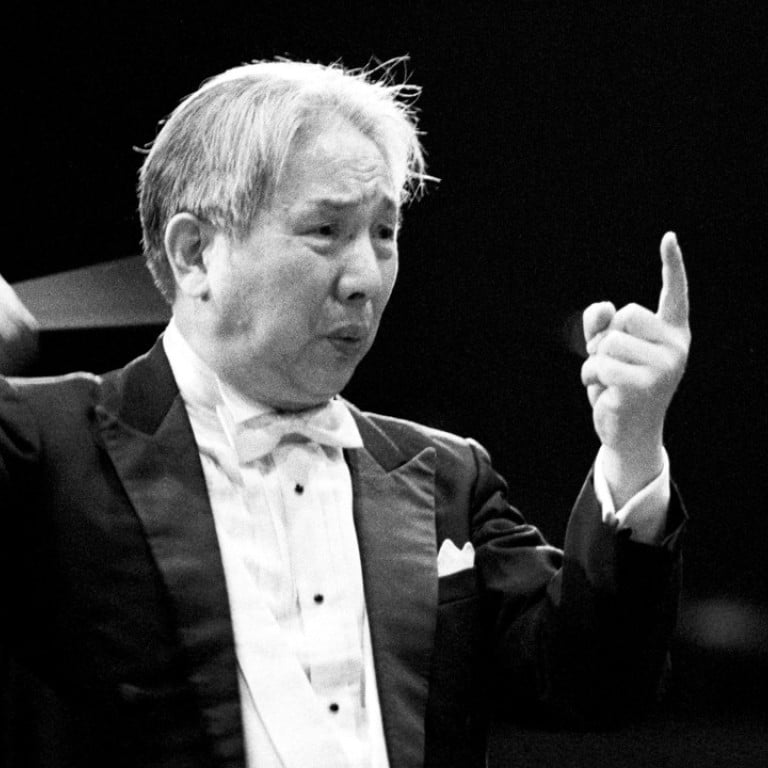
Han Zhongjie, pioneering conductor who blazed trail for Chinese musicians in the US, dies aged 97
Han Zhongjie’s career was marked by a series of musical diplomatic milestones, in which he became the first conductor to go on a foreign tour with a Chinese orchestra before a series of groundbreaking performances with the Boston Symphony Orchestra
Han Zhongjie, the last of the old guard of Chinese conductors, who made a series of groundbreaking performances that stretched from Warsaw to Boston, has died aged 97.
Han was a pioneer of symphonic music in China and acted as mentor for a league of distinguished conductors over the course of six decades.
He was best known as the first Chinese to conduct the renowned Boston Symphony Orchestra soon after China normalised relations with the United States.
He made his debut abroad almost a quarter century earlier, but for political reasons was initially confined to the Soviet bloc.
“How I wish I could have pursued my music career in an environment that was free of political interference, but what I got was the opposite,” Han once said.
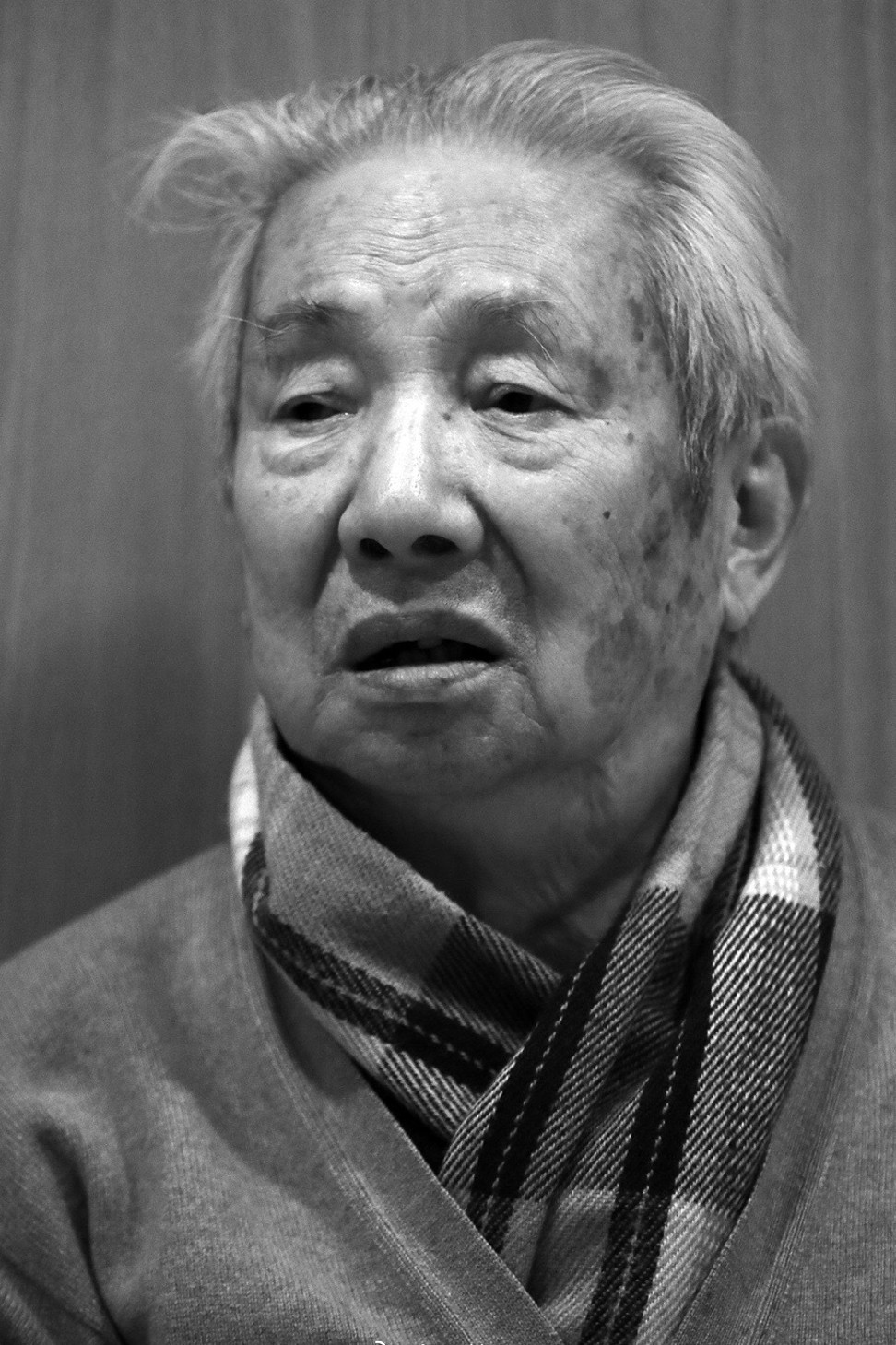
How I wish I could have pursued my music career in an environment that was free of political interference, but what I got was the opposite
Born in Shanghai in 1920, Han studied at the national conservatory with the principal flautist of the city’s municipal orchestra, a versatile band of expatriate players.
After Shanghai fell to the Japanese invasion, Han retreated to the wartime capital of Chongqing and joined the China Symphony Orchestra there as principal flautist.
A performance of Dvorak’s New World Symphony and Smetana’s Moldau River impressed a Czechoslovak diplomat so much that the attaché presented him with a flute from his family collection.
Han returned to Shanghai after the war and divided his time between recording, teaching and performing.
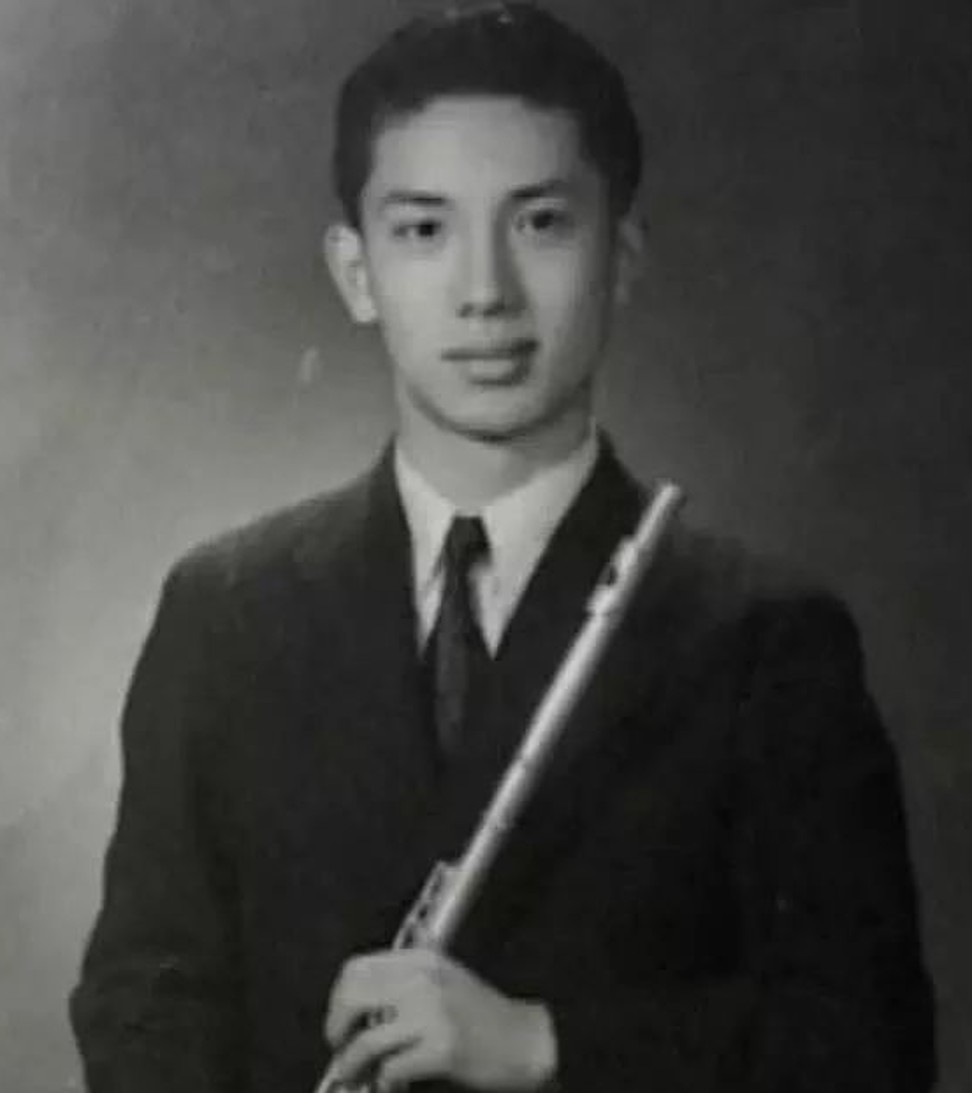
In 1951, Han was part of a large Chinese delegation that visited the Third World Youth Festival in East Berlin, where he won a bronze medal for a solo flute performance.
A year later, he took part in the Prague Spring Music Festival.
In 1954, Han made his debut as a conductor in Beijing in a performance of Dvorak’s Carnival Overture with the newly formed Central Song and Dance Ensemble.
The success of that performance led to him taking the young orchestra to the Fifth World Youth Festival in Warsaw in 1955.
This was the first time a Chinese orchestra had performed in Europe, with a programme that included China’s own Spring Festival Overture composed by Li Huanzhi, and the last movement of Tchaikovsky’s Fourth Symphony.
In 1956, when the Central Philharmonic was founded as China’s first state orchestra, Han was sent to study conducting at the Leningrad Conservatory, and conducted the China premiere of Berlioz’s Symphonie Fantastique on his return in 1961.
In 1965 his performance of a collection of works by Sibelius marked the last time that Western music would be heard inside China for 10 years.
After the start of the Cultural Revolution, during which he was initially denounced as a “black gangster”, Han was transferred to the Central Ballet to record and perform Red Detachment of Women, then one of the eight approved revolutionary model plays. In 1971, Han took the work on tour to Albania, Romania and Yugoslavia.
Han also toured with the Central Philharmonic in North Korea soon after the end of Cultural Revolution.
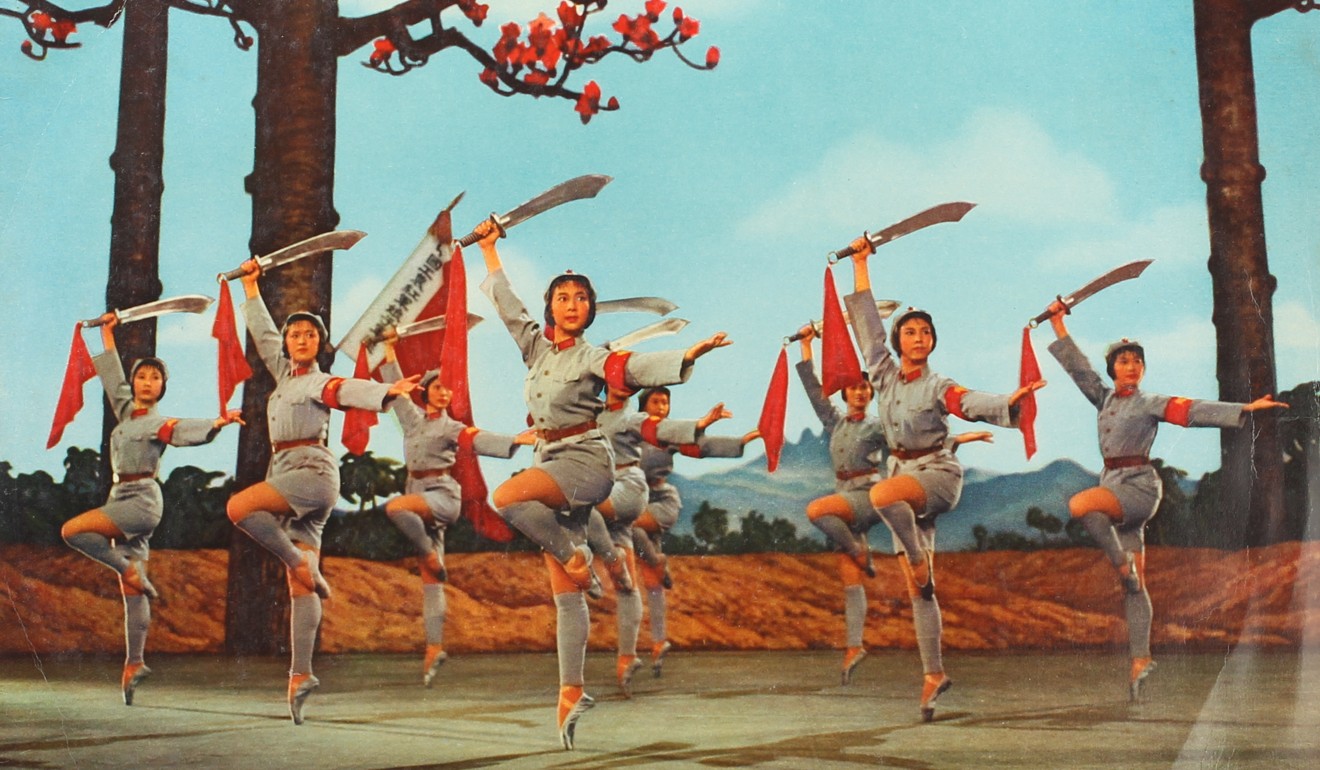
Then in 1978, amid a thaw in relations with the West, he made history with a concert in Beijing that was broadcast live to listeners in France and the UK.
Two years later, he made his American debut with the Boston Symphony Orchestra as a part of the cultural exchange between the two countries.
In 1986, Han made his Hong Kong debut with the Central Philharmonic at sell-out concerts at the City Hall and the Hong Kong Coliseum. But he brought with him more than his baton.
As Yim Hok-man, a former Central Philharmonic player and now principal percussionist of the Hong Kong Chinese Orchestra, recalls: “He took me by surprise when he presented a set of piano scores he got from Leningrad, personally signed, for my nine-year-old daughter who won the school competition.”
Yim Wan, the girl in question, adds: “He gave me scores of Bach, Beethoven and Chopin. These choices reflect his exquisite musicianship, which is different from the young ones today who play music like acrobats.”
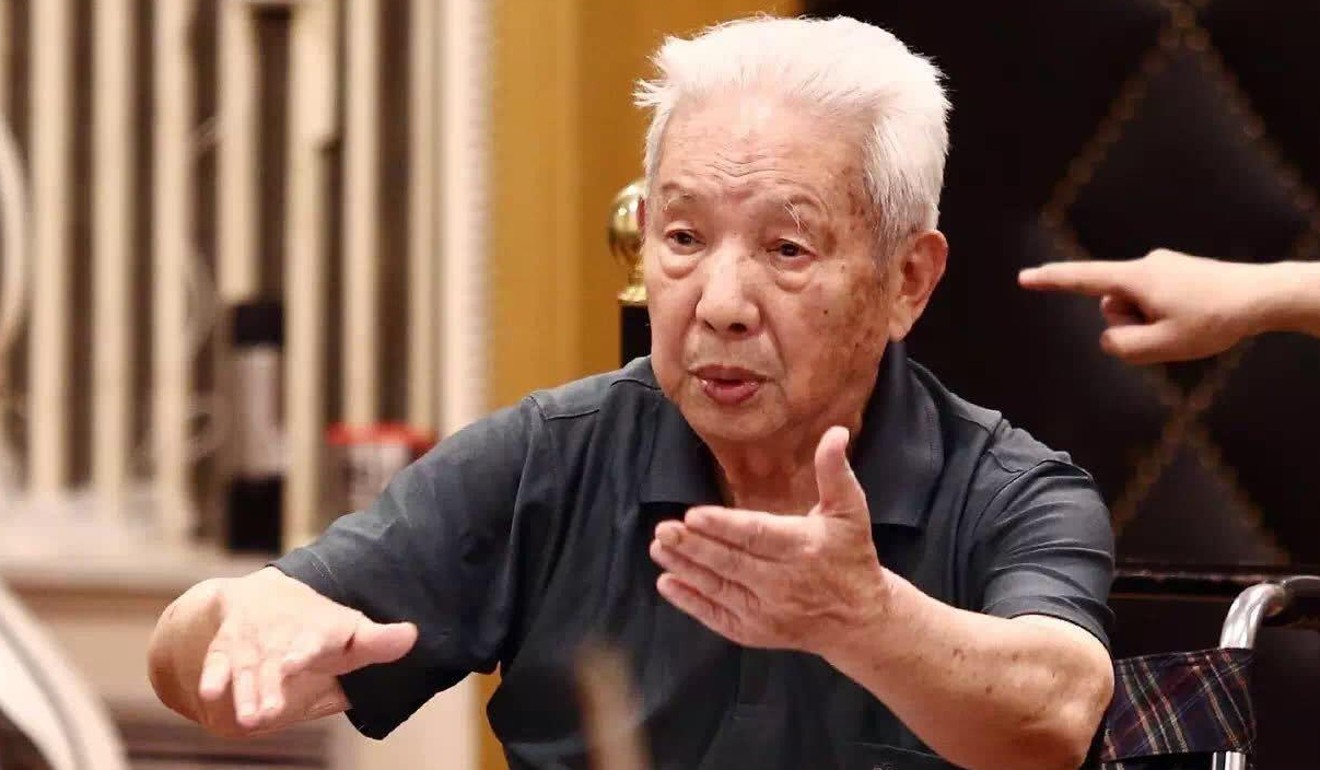
In 1990, Han toured Spain with the Central Philharmonic, performing 43 concerts in 98 days, making a breakthrough in the diplomatic stalemate that followed the 1989 Tiananmen Square massacre.
In 1996, he became an adviser to the new China National Symphony Orchestra, whose conductor Chen Zuohuang was a former student of his.
His other students included Tsung Yeh, former music director of the Hong Kong Sinfonietta and now of the Singapore Chinese Orchestra, and Shao En, formerly musical chief of the Macau Orchestra.
Han died at the 305 Hospital in Beijing on April 3 morning at the age of 97. He is survived by a son, two daughters and grandchildren.
His funeral service is scheduled to be held at Babaoshan cemetery in the Chinese capital next Monday.

